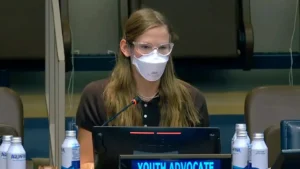Trump Officials Invoke ‘State Secrets’ to Withhold Deportation Flight Details
The Trump administration has invoked the “state secrets” privilege to withhold critical details about deportation flights, sparking major legal and political debates. This unprecedented move, linked to the deportation of alleged Venezuelan gang members, raises serious concerns about transparency, judicial oversight, and human rights. Below, we break down each key aspect of this issue to provide a clear and engaging understanding for readers.
Why is the Trump Administration Withholding Deportation Flight Details?
The Trump administration claims that revealing details about deportation flights could pose a national security threat. The primary reason cited is the alleged involvement of the Venezuelan gang Tren de Aragua in illegal activities across the United States. By keeping flight details classified, officials argue that they are preventing potential criminal organizations from tracking deported individuals and avoiding law enforcement.
Key Points:
- The administration invoked the Alien Enemies Act of 1798 to justify these actions.
- Flights continue to operate despite legal challenges raised by courts and human rights groups.
- Deportees include asylum seekers whose applications were still under review.
Legal Challenges and Court Battles Over Secrecy
U.S. District Judge James Boasberg issued a temporary restraining order to halt these deportations, arguing that due process must be followed. However, reports indicate that deportation flights continued despite this order. The administration has used the “state secrets” privilege to block legal requests for transparency.
Comparison Table: Legal Concerns vs. Administration’s Justification
| Legal Concerns | Administration’s Justification |
|---|---|
| Lack of due process for deportees | Protection of national security |
| Possible violation of asylum laws | Preventing criminal organizations from intervening |
| Judicial oversight being ignored | Using executive power to enforce immigration policy |
Humanitarian Concerns: What Happens to the Deportees?
Beyond legal disputes, there are serious concerns regarding the treatment of deported individuals. Some deportees were expecting to be sent back to Venezuela but were instead flown to third-party countries like El Salvador. This has raised accusations of forced deportation to unsafe areas where migrants have little to no support.
Key Concerns Raised by Human Rights Organizations:
- Reports suggest that some deportees were sent to locations where they face severe safety risks.
- Families were separated without clear communication about their relatives’ whereabouts.
- Migrants were shackled during transportation, a practice criticized by human rights organizations.
Political Fallout: How This Affects U.S. Immigration Policy
The controversy over these deportations has sparked intense political debate in the United States. Immigration remains a highly divisive issue, with supporters of the administration arguing that these measures strengthen border security, while critics warn that they undermine legal protections and due process.
Impact of the Policy on Different Groups
- Trump Administration → Defends secrecy, claims it prevents gang activity.
- Judicial System → Challenges secrecy, demands legal oversight.
- Human Rights Groups → Accuse the administration of illegal deportations.
- Deported Individuals → Many face unsafe conditions or separation from family.
- Public & Voters → Divided, some support security measures, others demand transparency.
Conclusion: Why Transparency Matters
The Trump administration’s use of state secrets privilege to withhold deportation flight details is a critical legal and political issue. The lack of transparency has led to legal challenges, raised humanitarian concerns, and created a sharp divide in public opinion. This case will likely have long-term implications for U.S. immigration policies and executive power.





